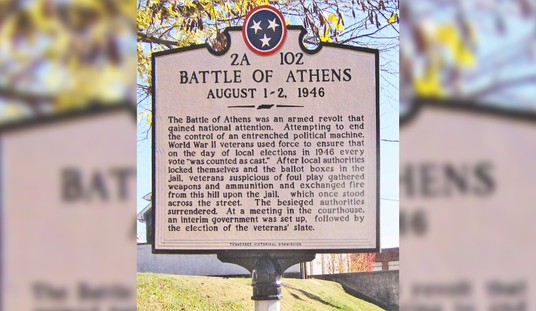Really interesting piece by James Piereson in The New Criterion titled, “Lyndon Johnson and the Cult of Sentimentality“. Reading it, you can almost watch the swanky grown-up early sixties of JFK give way to the far left dominated anti-reason late-’60s, to the brown corduroy bell-bottom bogosity that was the entire 1970s. And it’s logical for Piereson to place LBJ as the man at the heart of the transformation. I think I remember Doris Kearns Goodwin in a PBS profile of LBJ (back when she seemed to be in every PBS presidential profile) in which she said that Johnson wanted everyone’s adoration for the Great Society, much as the public three decades earlier adored FDR. “Johnson was giving everyone a gift, and he wanted them to love him for it”, is how I remember her quote.
But LBJ was not a figure made for the television, which was at its zenith (sorry) in the 1960s. (Marshall McLuhan wrote endlessly–if elliptically–at the time on whether or not someone was made for the Medium Cool). How could Johnson compete with someone like Bobby Kennedy, who as Piereson writes, knew exactly how to play to the television cameras:
It is perhaps too easy to draw the lesson from this that sentimentalists are destined to be ruled by Machiavellians who know how to exploit their attachment to sentiment and emotional expressions like “We must love one another, or we must die.” Yet, just as Johnson sought to exploit the emerging culture of sentimentality, he was also brought down by it because he was so obviously ill-suited to the role of pied-piper to the young and sensitive. The sentimentalists were hard-headed enough to see (leaving Vietnam aside) that Johnson was not one of them. Johnson, no matter how hard he tried or how much liberal legislation he passed, was simply not convincing as an exemplar of peace and love.
No, the growing army of sentimentalists of the time preferred to march behind Robert Kennedy — a far more Machiavellian figure because Kennedy, unlike Johnson, understood that a politician in a sentimental age must not only say sensitive things, but must also appear authentically to be sad, mournful, and burdened by the tragedies of the world. Robert Kennedy appealed to this emerging culture because he looked like the real thing, a man broken by the tragic but senseless death of his brother. Yet, if this was the case, as to come extent it was, it did not stop Kennedy from exploiting it in his own quest for power and high office. Perhaps the only lesson to be learned from this bizarre period is that, in the end, sentimentality can never answer nor succeed in putting aside the permanent questions of politics, namely: conflict, ambition, and the pursuit of power.
Read the rest, for it is very good.










Join the conversation as a VIP Member